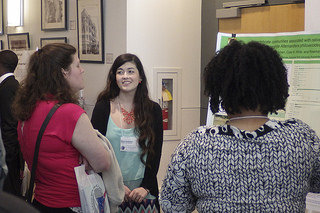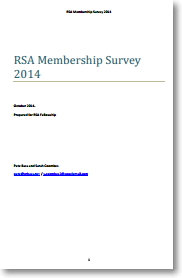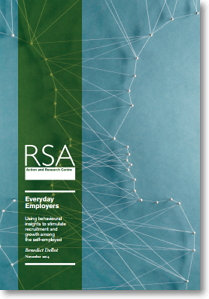
During the summer of 2014 the Society sent out a survey to the Fellowship, seeking their responses on a number of issues and asking for their views and comments.
Below is a copy that analysis, garnered from the 29% of Fellows who responded, along with some thoughts from the conversationsEAST team as to how our contribution to the work of the Fellowship might be flexed, in response to the findings.
The summary findings from The House indicated the following…
“Overall responses to the survey were positive. Over two-thirds of Fellows join–at least partially–to support our mission, the quality of almost all of our outputs is seen as very high and by far the majority of Fellows are intending to renew their Fellowship. The Survey also generated a large amount of information that can be used to guide ongoing Fellowship development”.
Key findings included…
- There is less satisfaction with local events compared to other areas of our work.
- There are a large number of Fellows wanting to self- organise but are frustrated at being unable to do so.
- There are a large number of Fellows wanting to self- organise but are frustrated at being unable to do so.
- Some Fellows want to be more involved in the work we do.
- There is a lack of knowledge about what we do. Across the seven RSA Projects included in the survey, `have not heard of it at all’ accounted for between a quarter and a half of all responses.
- Younger people and females are less likely to recommend the Fellowship to suitable people than others
- There are strong regional variations in how Fellows perceive the RSA.
(Key findings drawn from the RSA Fellowship summary report – Ed.)
Looking forward into 2015 we have recently published our ‘road-map’ as a journal, where we have been working with Tim, our new Fellowship Councillor in the East, to develop a series of gatherings to explore how Fellows can become more engaged with the Society.
![]() You can view, print or download a copy of the 2014 RSA Survey here…
You can view, print or download a copy of the 2014 RSA Survey here…

We will, as stated, pivot these, supporting Tim directly in the delivery of a series of Fellowship Councillor Surgeries across the region. This might help inform and engage the interested Fellowship directly. Offering an informal setting, with refreshments, for the survey itself to be discussed and for Tim to explain and heighten awareness of the work and input of the Fellowship Council itself. One of the findings in the survey was that many Fellows were unaware of the function of the Fellowship Council, for example.
Another way forward, we would argue, would be to foster the engagement of female Fellows, either as new Fellows, or to develop some way to engage with the Fellowship on a gender basis. We have written before in this journal and in our regional annual reports about the gender imbalances, including in the Fellowship, in our region.
(We could start an Otrera Group in every region to foster the engagement and promotion of Fellowship skills by gender, for example? -Ed.)
If this imbalance in Fellowship is ‘normalised’ across all regions, we would look to develop a campaign/project to engage by gender across adjacent regions for example. Sharing both the information in the recent survey, but garnering explicit local knowledge on gender bias as part of the project initiation work.
(Having talked so long about the matter, it seems that a short burst of positive discrimination, in terms of engagement and resources, might go a long way? -Ed.)
In our publishing activities we will develop a ‘Fellows have their say!’ web journal page. Where the Fellowship can directly contribute to the regional debate in the East. This might be particularly useful in bolstering the regional events catalogue in terms of feedback or activity recommendation. All this information will be passed directly and securely to the Eastern Region Fellowship team, of course.
We will foster and web publish a set of ‘View from the Fellowship Council’ reports. Getting Tim to write a regular review of Council activity and debate, in a generalised way, which can feed into regional meetings and, more importantly, be immediately available to the wider regional Fellowship. Helping to support and deliver a clearer understanding of its work and role.
We think the new RSA web site, arriving this month, which will enable Fellows to contact each other directly if they wish, offers an important and effective mechanism for pan regional co-operation, as well as improving inter-region project and activity development. We look forward to reviewing it on our web pages.
Also useful, we believe, will be the launch of artSUFFUSION, our sister arts focused web journal. We are refining the publication manifesto this month.
We hope that by combining the arts, crafts and making into one energy stream in the region, whilst connecting new conversationsEAST social enterprise start-up projects, we can also help convert our Society’s brilliant research papers and mission into real world examples of sustainable community business and social outcome funded projects.
We look forward to 2015, hoping that our readers will come along with us?
The conversationsEAST team.
Article image credit: David J. Thomas via photopin cc

